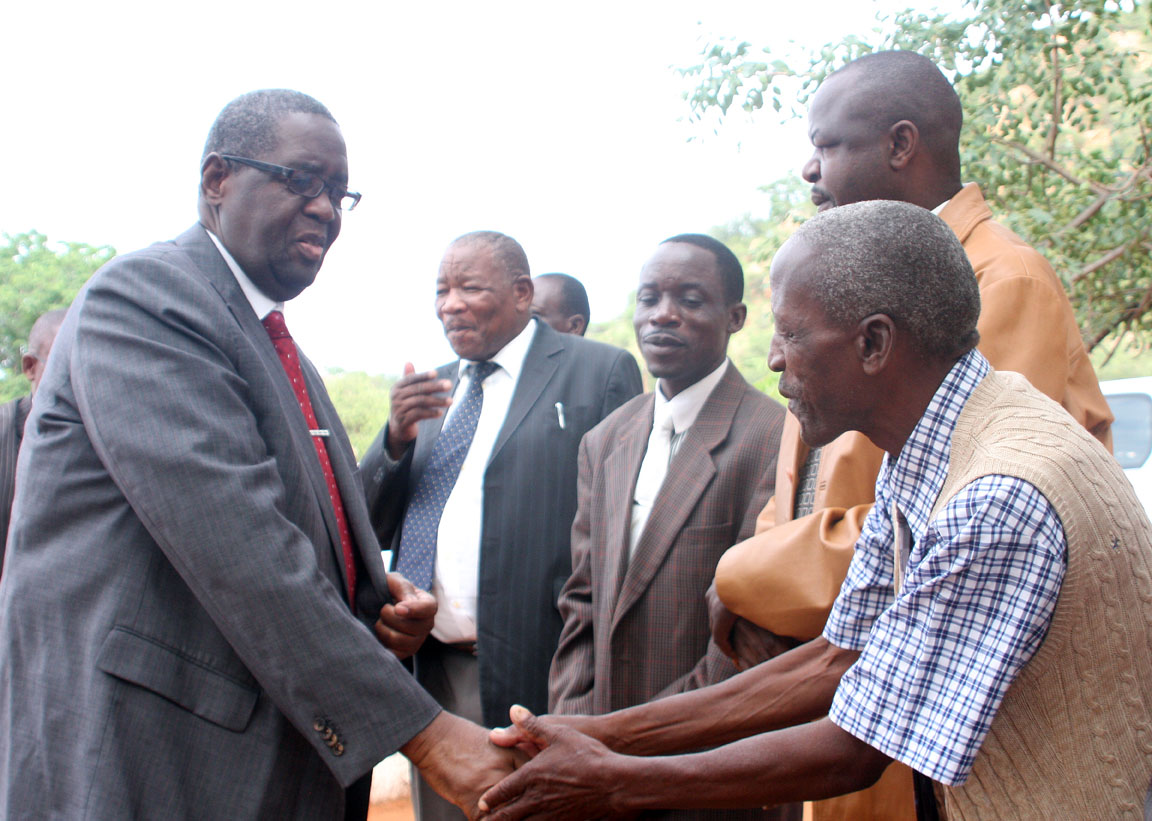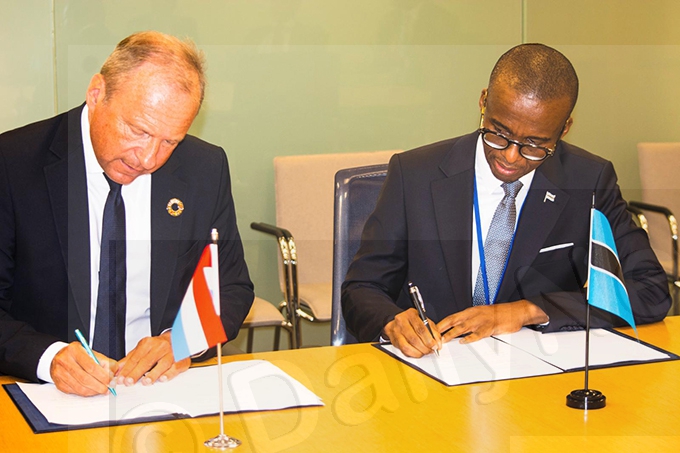Dams set to spur irrigation farming
18 Jan 2013
The Vice President, Dr Ponatshego Kedikilwe says water from Lotsane and Thune dams will be utilised in irrigation farming to increase food production.
Addressing kgotla meetings in Sefhophe and Tobane, this week, he stated that 250 hectares of land around the Lotsane Dam will be reserved for irrigation farming, while 350 hectares along Thune Dam will be reserved for agronomy.
Dr Kedikilwe informed his audience that farmers in the areas will be obliged to engage in horticulture, field crop and cattle feed production.
The effort is meant to improve crop production, as well as to help reduce importation of cattle feed into the country.
He informed the residents that land around the dams will not be reserved for residents of nearby villages, but will be allocated to Batswana who are interested in agriculture.
The allocatees, the Vice President explained, will be trained to equip them with the necessary skills to manage their projects.
On other issues, Dr Kedikilwe urged residents of Sefhophe and Tobane not to lose hope in farming after losing many of their livestock to drought.
He said the government tried by all means to mitigate the situation by providing subsidised livestock feed.
Further, he said, government is committed to improving the lives of Batswana by bringing services nearer to them.
These include payments of old age allowances, war veterans pension, prepaid electricity and airtime for mobile phones which are availed by BotswanaPost at its post offices and postal agencies around the country.
He further informed the residents that they can also pay their utility bills at the same facilities.
Dr Kedikilwe said the Ministry of Trade and Industry has been requested to look into their complaint regarding permit and customs payments that they are required to export phane worms to South Africa.
This was after the residents complained that they incur a lot of expenses in order to make a living from selling phane.
One of the residents said she paid P500 for a permit to sell the worms, while customs officers at the border post charged her P1500 for what they called ‘phane worm visa’ to export the worms to South Africa. ENDS
Source : BOPA
Author : Tshepo Mongwa
Location : Selebi Phikwe
Event : Kgotla meeting
Date : 18 Jan 2013







